MXA INTERVIEW: GREG ALBERTYN: “IF I CAN LEAD THIS THING, I COULD WIN IT”
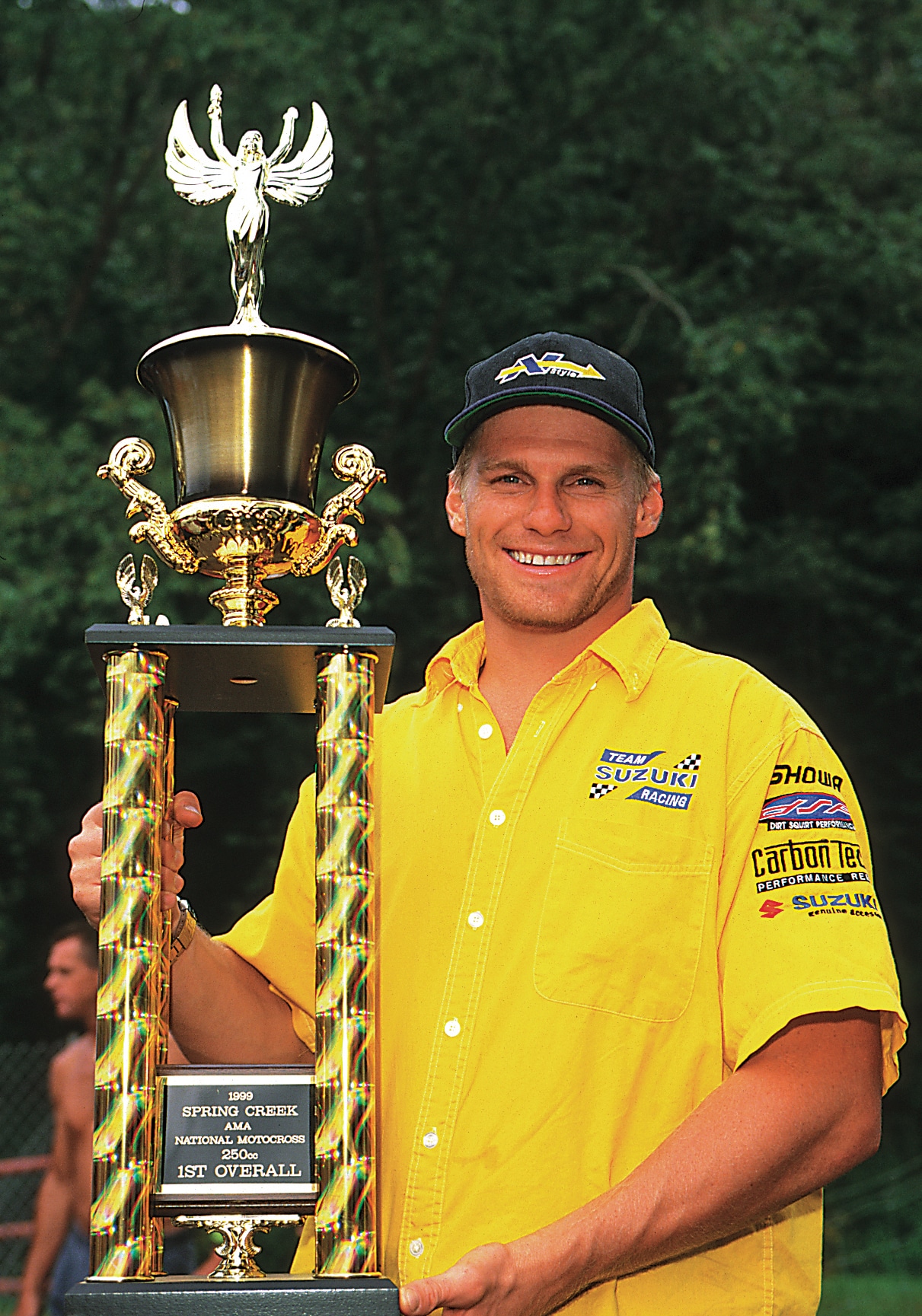
BY JIM KIMBALL
WHY CHOOSE EUROPE OVER AMERICA? We didn’t know anybody in America, and since Rob Herring and Collin Dugmore had moved from South Africa to Europe, we thought that was the next logical step. It is interesting to think about what my career could have looked like if I had come to the States first. Maybe my Supercross career could have gone better.
WHAT WAS THE REACTION TO YOU BEING A SOUTH AFRICAN? For those not familiar with South Africa’s politics, we were still very much in the middle of apartheid at the time. On the international stage, South Africa was almost like a cuss word. If you said you were from South Africa, people would scoff at you. I needed a visa for every single country I went to.
I couldn’t go to the Brazilian GP in 1991 because they would not allow me in. I almost missed the 1992 Swedish GP, because they didn’t want to allow me in. Europe was tough and incredibly lonely. I did not have any friends and couldn’t speak the language. The weather was dark, and the culture was dark. Most of that first year I was injured, so I sat on the sidelines not doing anything.
BUT, YOUR DREAMS CAME TRUE. Yes, a fax came through from Jan de Groot, the owner of the JHK Honda team. He said, “I need a guy who is willing to race the Dutch Championship and do the 125 Grands Prix as well.” They would pay me a salary of $10,000 Dutch guilders, plus a mechanic, bike, you name it. We thought we had died and gone to heaven. That’s how I got something for 1991.
HOW WAS THE 1991 SEASON ON THE JAN DE GROOT BIKE? It was a huge learning year. I finished tied for eighth in the 125 World Championship. The big negative for me was that the top 15 in the World Championship got flown to Guatemala and then to Brazil for the Grand Prix. I was the only rider out of 30 who was stranded in Guatemala because I could not get into Brazil. That cost me quite a few points, and I ended up tying for the 125 World Championship with Pit Beier, who is now the KTM Director for Motorsports.

DID YOU STAY WITH DE GROOT FOR THE 1992 SEASON? Yes, he signed me for the 1992 season because I led the 1991 Japanese GP for half the race until I grenaded. I got several podiums that year. When I was leading a GP, I began to believe that “if I can lead this thing, I could win one.”
IN 1992 YOU WON THE 125 WORLD CHAMPIONSHIP. HOW DID YOU ACHIEVE THAT? After the Japan GP, I believed that if I led a GP, I could win it. So, my very first race in Spain, I ended up winning it. The FIM had gone to a three-moto format, and I ended up winning two motos. That was one of the best years I had racing, because my teammate was former 125 World Champion Dave Strijbos, and he helped me elevate my game. When we would go testing, he would put in a faster time than I would, and I would go out and try to beat it. We both became super strong.
WAS THERE A SPECIFIC HIGHLIGHT OF YOUR 1992 SEASON? I was leading the Championship, and the FIM ended up canceling the Brazilian Grand Prix, which was great because it is doubtful that Brazil would have let me in because of my visa issues.
They moved that GP to Holland. My two main rivals, Dave Strijbos and Pedro Tragter, were sand specialists. Everybody said, “Albertyn is done.” But, I ended up winning that GP, too, and went to the final race in Japan needing only one point.
YOU WERE THE 125 WORLD CHAMPION, BUT YOU MOVED UP TO THE 250 CLASS. WHY? For decades, the 500s were considered the premier class, but some manufacturers had stopped making 500s. It lost its luster, and, suddenly, the 250s were considered the premier class.
I have always been one of those guys who once I have achieved something, I look for a new challenge. I did not want to repeat the same thing. In 1993 a lot of the 500 riders had come down, and many 125 riders moved up. It was one of the most competitive years ever.
AND, YOU WOULD WIN THE 1993 250 CHAMPIONSHIP? Yes, I surprised a lot of people when I won the first GP in Italy. The first moto, I finished fourth, but my throttle housing was rotated a little bit forward. When I pulled the front brake, it would hit the nut, so I had no front brake. Between motos, I told Ian Harrison, “If you fix my front brake, I will win the next moto.” I ended up winning the next two motos.
“SO, I SAID TO IAN, “HEY, MAN, HOW WOULD YOU LIKE TO BE MY MECHANIC
IN EUROPE FOR THE 1992 SEASON?” IAN BASICALLY GAVE UP EVERYTHING,
JOINED ME, AND HAD A BAPTISM OF FIRE.”
THE SAME IAN HARRISON WHO IS NOW THE KTM TEAM MANAGER? Yes, Ian came over with me in 1992. The first two years in Europe I was on my own. I had a mechanic in 1991 that I did not care for. So, I said to Ian, “Hey, man, how would you like to be my mechanic in Europe for the 1992 season?” Ian basically gave up everything, joined me, and had a baptism of fire. We went after our first World Championship together. It was awesome. I still consider him my best friend.
DID YOUR RIVALRY WITH STEFAN EVERTS START THEN? Yes. A huge rivalry, even in the very first year in Belgium when I was racing for that Kawasaki dealership. Everts was 17 and was on a full-factory Suzuki, and I was this kid from South Africa beating him at the Belgian National Championships. Right from the get-go, he did not appreciate that.
I don’t want to say it got ugly, but I beat him in every Championship when I raced against him. Stefan was an unbelievably talented rider. He was so gifted on a bike, but I had him mentally beaten.
WITH THE 1992 125 WORLD CHAMPIONSHIP AND 1993 250 WORLD CHAMPIONSHIP, YOU MUST HAVE BEEN HIGHLY SOUGHT AFTER IN 1994. My goal was to race in the United States for the 1994 season, and I made it very clear to the DeGroot Honda team that I was negotiating with American Honda.
I had a faxed contract from Dave Arnold: $350,000 to race Supercross/motocross and become Jeremy McGrath’s teammate. I went to Japan for the last GP of the year, and the plan was to sit down with Honda Japan to sign the agreement. But, Dave Arnold came over with this blank look on his face.
I asked, “What’s up, Dave?”
He said, “I have just been told that I cannot sign you. You are racing in Europe on a privateer Honda team and have won two World Championships. They are questioning why they would pay you to race in the USA against our winning guy when you are already doing it for free in Europe. We can’t sign you.” I was just floored at this point. I was absolutely devastated.
AMERICAN HONDA SIMPLY WITHDREW THE OFFER? Yes. I had an agreement they sent to me. We were ready to move forward. By that time, the DeGroot Honda team had signed Stefan Everts for the following year. I was without a ride. I got in touch with Kawasaki and Yamaha in the States, but there were no opportunities.
“THE BIGGEST CHALLENGE WAS MY LACK OF CONFIDENCE. WHEN YOU ARE INJURED REPEATEDLY, YOU LOSE ALL CONFIDENCE IN YOUR ABILITY.”
IS IT POSSIBLE THAT A TWO-TIME WORLD CHAMPIONSHIP COULD BE WITHOUT A RIDE? The doors were closed in the States, so I started talking to Michele Rinaldi’s Yamaha team and Sylvain Geboers’ Suzuki team—the one that Everts had just left. The two teams got together and agreed to offer me the same amount of money and let me decide.” They do things differently in Europe.
They both offered me the same deal! I went with Sylvain, as I was living in Belgium. His factory was just up the road, and I was familiar with the language.
WAS THE OPPORTUNITY TO RACE IN AMERICA THE OTHER PART? Yes, Roger DeCoster came to my apartment. He had left Honda by then and had moved back to Suzuki. We put a plan together where I would race one year in Europe and the next year in America. Roger put the program together with Suzuki North America. Ian would come over as my mechanic; we were a package deal.
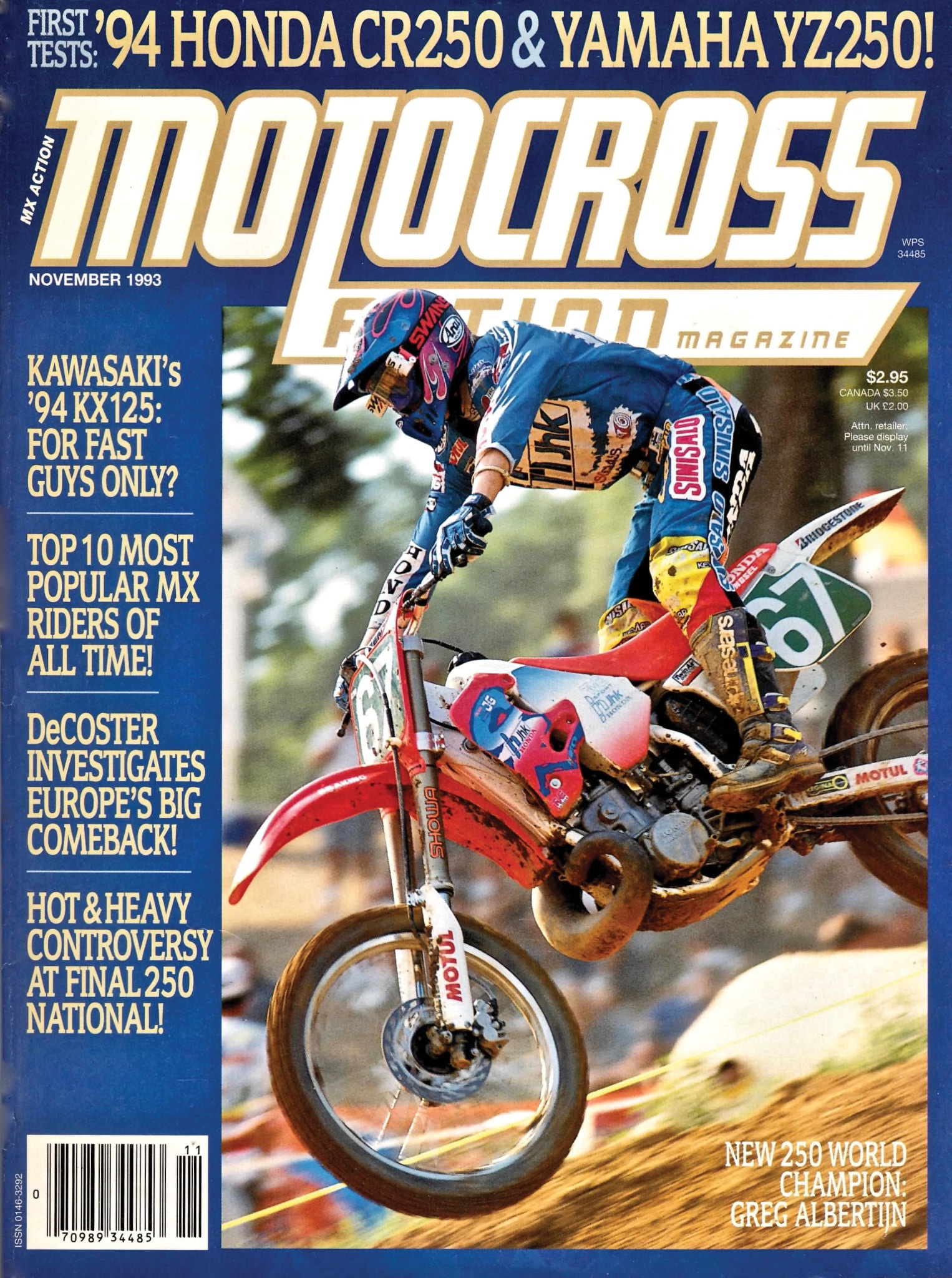 Greg on the cover of the November 1993 issue of MXA on his World Championship winning Honda.
Greg on the cover of the November 1993 issue of MXA on his World Championship winning Honda.
THEN, IN 1994, YOU TOOK STEFAN EVERTS’ RIDE AND BEAT HIM TO DEFEND YOUR 250 WORLD CHAMPIONSHIP! Yes, and I’m sure that rubbed salt in the wound. It was not an easy Championship because the Suzuki was not set up for my riding style. It was tailored for Stefan’s very smooth and unique style. I struggled at the first three GPs. I thought that there was no way I would win the Championship, but eventually I won the Ernee Grand Prix in France and turned the Championship around.
The Suzuki was so different. I don’t know if you remember how much Jeremy McGrath loved the 1992–1996 Hondas. I had just gotten off the 1993 CR250, which was phenomenal, then jumped on a full-factory Suzuki RM250 where everything was different. There were a thousand choices to make, and it was easy to get lost and go the wrong direction.
WHAT STOOD OUT ABOUT YOUR 1994 BATTLE WITH STEFAN EVERTS? It escalated significantly, as now I was not as strong as I was the year before. We were neck and neck, but by mid-season I had developed a 55-point lead in the Championship. We went to Lommel, which was a very sandy track in Belgium—basically in Stefan’s backyard.
Both races I went down in the first corner and came from dead last. I was fourth the first moto, and with one lap to go, I ran out of fuel. In the second moto, it was virtually the same situation! I went to Lommel with a huge point lead and left five points ahead of Stefan. That was demoralizing,
WHAT WAS THE SECOND THING THAT STOOD OUT? Everts ended up breaking his collarbone and missing a race. We went into the final round separated by only 10 points. The very last race of the Championship was in Germany, and even if I finished behind Everts, I would still have won the Championship. Coming into the final lap, he tried to take me out.
LATER THAT YEAR AT THE MOTOCROSS DES NATIONS, YOU HAD ONE OF THE STRANGEST CRASHES IN GRAND PRIX HISTORY. Yes. I had just won the 250 World Championship, and then while I was leading the Motocross des Nations in Rosenberg, Switzerland, a deer ran right into me. I crashed and went over the bars. I am, without a doubt, the only rider leading the Motocross des Nations to be taken out by a deer.
WAS THAT YOUR LAST RACE BEFORE COMING TO AMERICA IN 1995? Yes, it was. But, one week later, I was in South Africa practicing and I crashed and broke my navicular—again. Later, I came to America, and at the Orlando Supercross I dislocated my shoulder. Then, I went to the Indy Supercross and tore all the ligaments in my ankle. Finally, at Troy, Ohio, I broke my navicular again. But, this time it would not heal, so I had to get surgery. I was off the bike for six months.
YOUR SECOND SEASON IN AMERICA WASN’T MUCH BETTER, WAS IT? No. I went to the 1996 Orlando Supercross and dislocated my shoulder in the same place, on the same track, almost to the day, one year later. It was three magical GP seasons in a row and then almost 18 months of non-stop injuries.
WHAT WAS THE BIGGEST CHALLENGE ABOUT RACING IN AMERICA? The biggest challenge was my lack of confidence. When you are injured repeatedly, you lose all confidence in your ability. Also, when I first came to the States, it was only Roger and Ian working on setting up Team Suzuki. There was no race shop, no Suzuki practice track—there was nothing. I was practicing in the hills of Corona, with no track, trying to get ready for Supercross. Suzuki was such a rinky-dink operation when we first got here. I did not have the time to get used to riding on a Supercross track.
I RECALL MOTOCROSS ACTION SAYING YOU “RODE SUPERCROSS LIKE RIGOR MORTIS HAD SET IN.” Yes, I recall not liking that comment very much. I always struggled with Supercross; it was never as natural to me as motocross. I was not that finesse rider. Guys like Everts and McGrath were so much smoother and more precise than I was. With Supercross, I never quite felt like I was there.
YOU DID WIN THE SUPERCROSS OPENER IN 1997 THOUGH. The 1996 bike was so bad and so slow. The bike was pushing 43 horsepower—and that was a factory race bike! In 1997, they got a little better, and in 1998, they got better again. By 1999, they were good. But yes, to come out and win in the opener in 1997 was huge for me. Obviously, there was so much hype for McGrath and everybody else to win. It was just an incredible night.
WHAT HELPED YOU REGAIN YOUR CONFIDENCE? It wasn’t anywhere close to when I was in Europe. It was very much like a baby giraffe learning to walk. But that year I got better, and I had a great teammate in Jeremy McGrath.
His riding elevated mine for sure. I got five podiums that Supercross season and finished fifth in the Supercross Championship. It was my best Supercross season to date. Much of the setup McGrath brought to the team really helped me out as well.
“TO BE THE FIRST ONE EVER TO DO IT FROM SOUTH AFRICA WAS HUGE. LOOK AT GRANT LANGSTON AND TYLA RATTRAY; THEY KNEW IT WAS POSSIBLE BECAUSE I HAD ALREADY DONE IT.”
TELL US ABOUT THE 1998 MOTOCROSS CHAMPIONSHIP. It wasn’t until 1998 that I felt like I was becoming a podium contender week in and week out. Obviously, Doug Henry was on his Yamaha YZ400 four-stroke and holeshot every race. We were still struggling for power, but I felt like I was really starting to get that confidence and come into my own.
YOU FINISHED SECOND TO DOUG HENRY FOR THE MOTOCROSS CHAMPIONSHIP. WERE YOU HINDERED ON A 250 TWO-STROKE? No question. I joke that I won the 1998 AMA 250 title and Doug won the 400. To be honest with you, it was a bitter pill to swallow. I don’t want to take anything away from Doug, because he had a very good year and rode well, but I am telling you right now, there was at least a 10-horsepower difference between my Suzuki and his four-stroke. It is hard to beat somebody when they have that much more horsepower. But, I have no regrets. Everyone saw the injuries that Doug came back from, and he was riding well that year.
FINALLY, IN THE 1999 250 NATIONAL CHAMPIONSHIP, YOU GRABBED THE GOLDEN RING. Winning the 1999 Championship was a big deal because it was redemption. I felt that I could have won multiple Championships in the States, no question about it. I had the speed, but for whatever reason, things were not coming together. I didn’t want to say, “I never won in America. I was never able to conquer that.” That is the big factor for me that really made it so sweet. After all this hard work, it has finally paid off.
WHAT CAME NEXT? The only thing that I had not won was a Supercross Championship, and I was so motivated to win that Championship in 2000. The bike was the best that it had ever been, and I was ready to go. But, I broke my femur in Atlanta, and that really derailed me. A small little crash, but enough to make it snap, and that was it.
YOU WERE ABLE TO COME BACK FOR THE OUTDOOR SERIES WITH THE NUMBER-ONE PLATE. Yes, I did. As I said, I was ready to try to win the Supercross Championship when I broke my femur. Then, I was ready to defend my outdoor title. I got fourth overall at Glen Helen and sixth at Hangtown before going to Mt. Morris, which was a complete mud-fest. I crashed five times, and the last time I picked up my bike, something in me said, “You don’t have the fight anymore.”
That was the first time in my entire racing career that I had ever pulled off the track without being hurt.
Ian asked, “What’s wrong? Are you okay?”
I just replied, “I am done.” I just did not feel like I could give it that fight anymore. I had always raced to win, and for the first time, I realized that I did not have any fight left.
SO, MT. MORRIS WAS THE DECIDER? Yes, I finished the season out, but I let Suzuki know right away that I planned to quit. I had signed a two-year deal with them and wanted to give them time to hire somebody else. I said, “I don’t feel like I can give you guys 100 percent anymore. I have never raced for the money, and I am not going to start now.”
WHAT HAVE YOU DONE SINCE YOU RETIRED AT THE END OF THE 2000 SEASON? I raced one AMA National three years later at Glen Helen and made the top 10, but that was like a farewell race. Since then, I have had my ups and downs. I made lots of money in real estate, then I lost it all in real estate. Thankfully, now God has blessed me with another business. We sell products to the electric utilities out here. I am an entrepreneurial person, and I like the excitement of the deal. I don’t necessarily love electricity or the electrical grid, but I like the business side of things. I am a good student, and I’m always learning.
DO YOU EVER CONSIDER THAT MAYBE STEFAN EVERTS’ CAREER, WITH HIS MANY WORLD CHAMPIONSHIPS, COULD HAVE BEEN YOURS? I never regretted making the decision to come to America. I certainly question some of the things that were happening to me. As far as your Everts comment, I absolutely believe my career in Europe could have gone his way. But, I am different from Everts in the sense that I am always looking for a new challenge. Could I have won a few more World Championships? I believe I could have. He certainly would not have beaten me, because I had his number.
WRAPPING UP, WHAT IS YOUR FAVORITE MEMORY FROM YOUR RACING DAYS? I would have to say my first and last Championship. To be the first one ever to do it from South Africa was huge. Look at Grant Langston and Tyla Rattray; they knew it was possible because I had already done it. Whereas before me, I didn’t know if a South African could ever do it, coming from the smallest part of the globe. The redemption part of the last Championship was huge for me. It would have been a shame had I retired and never conquered America.


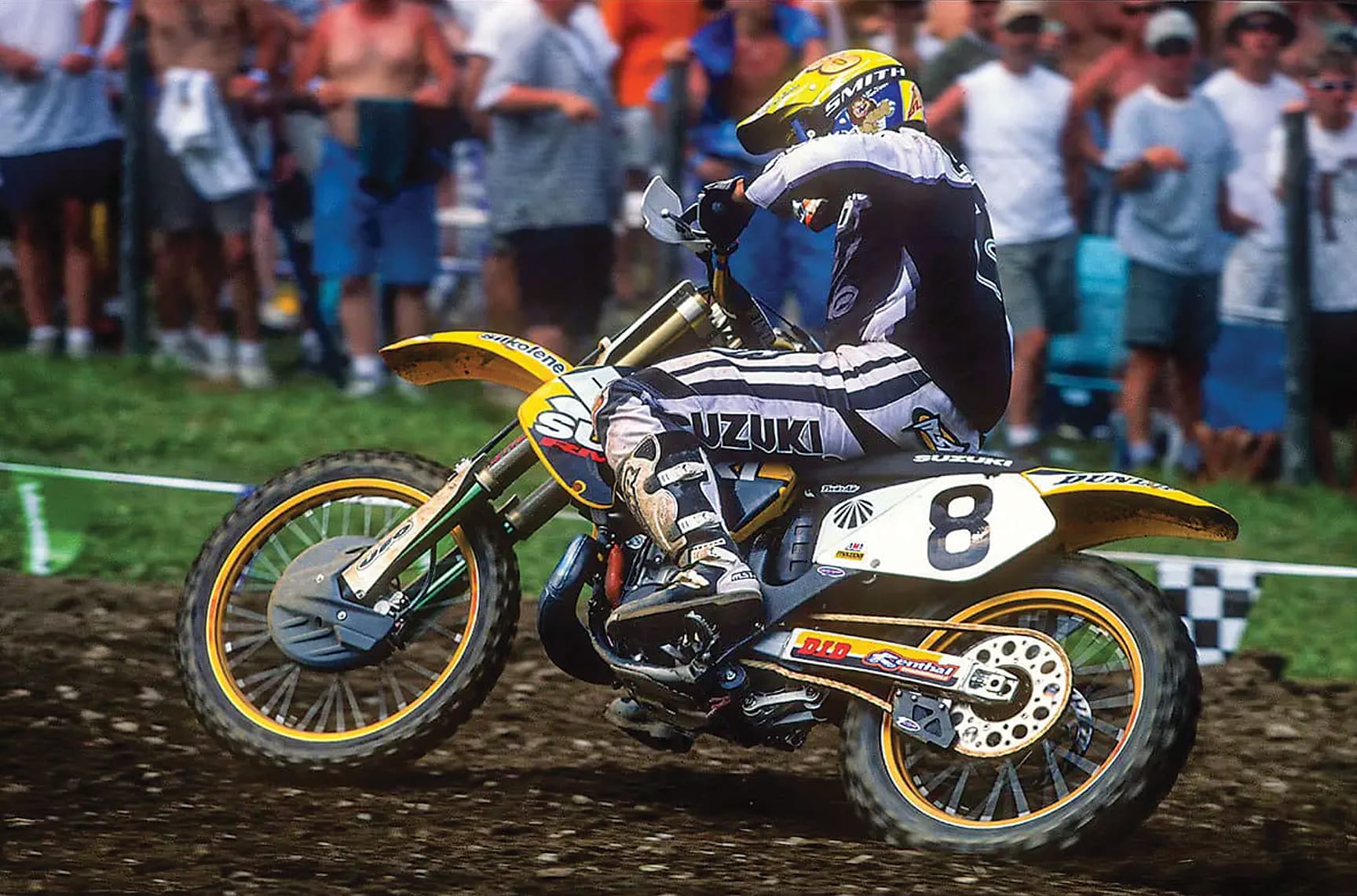
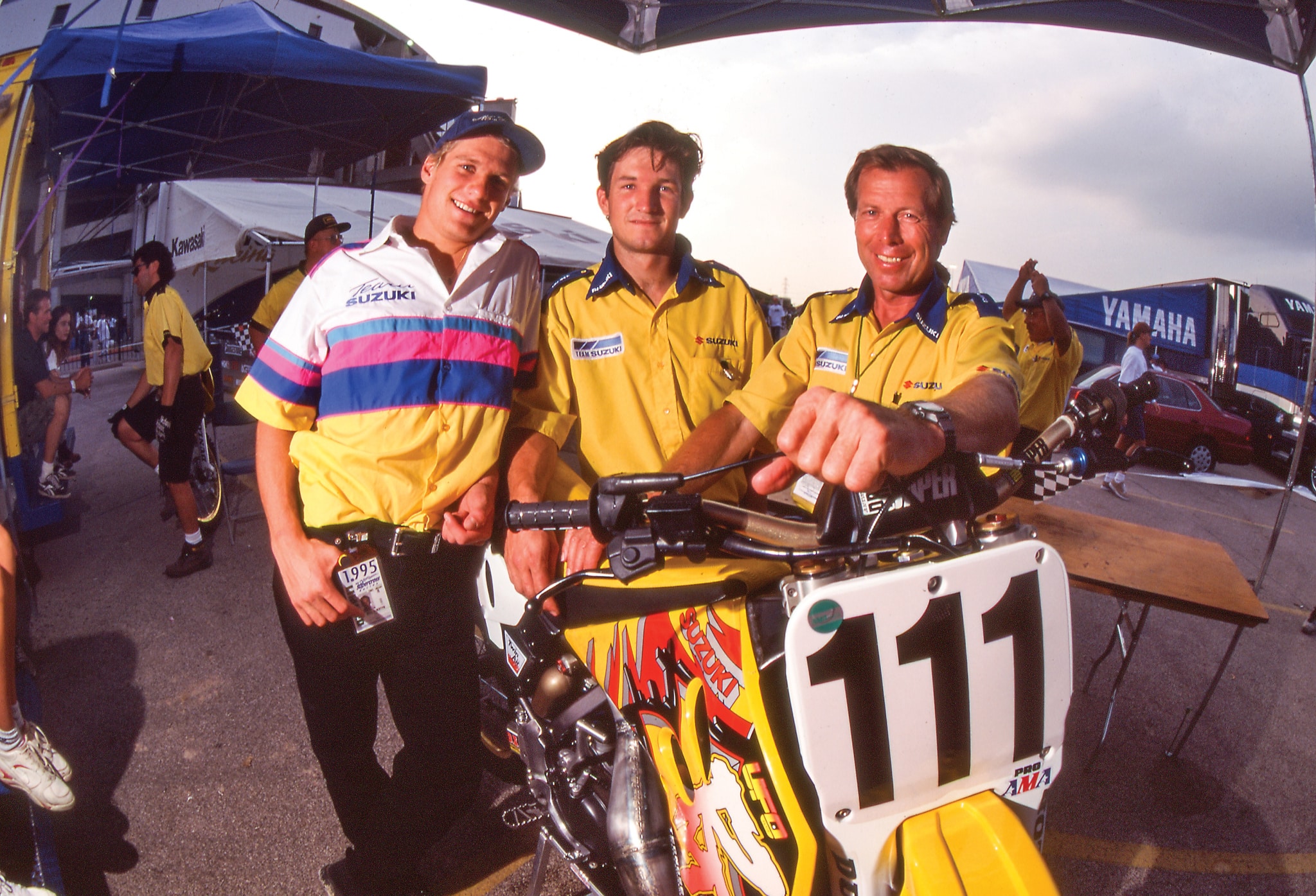
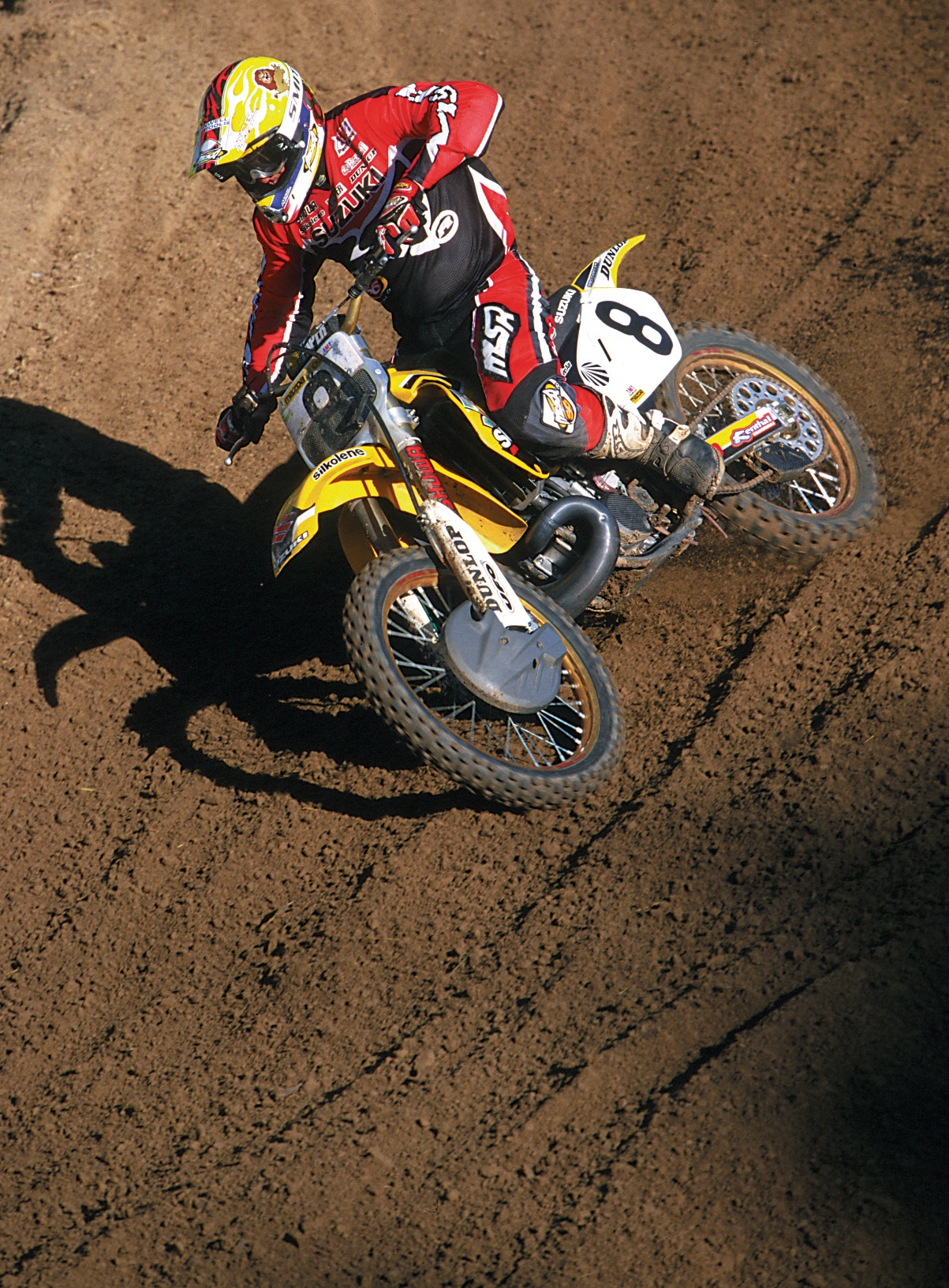
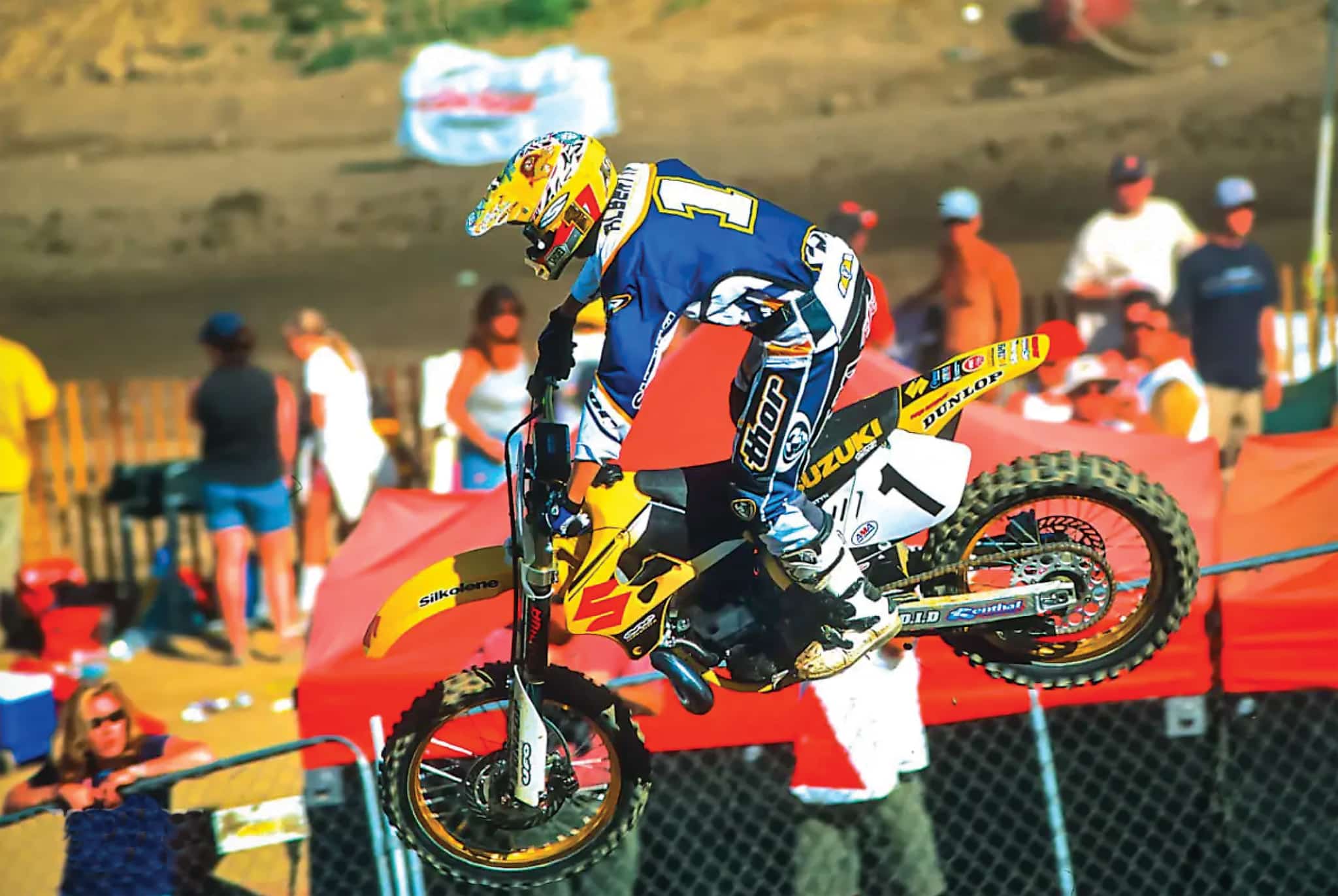
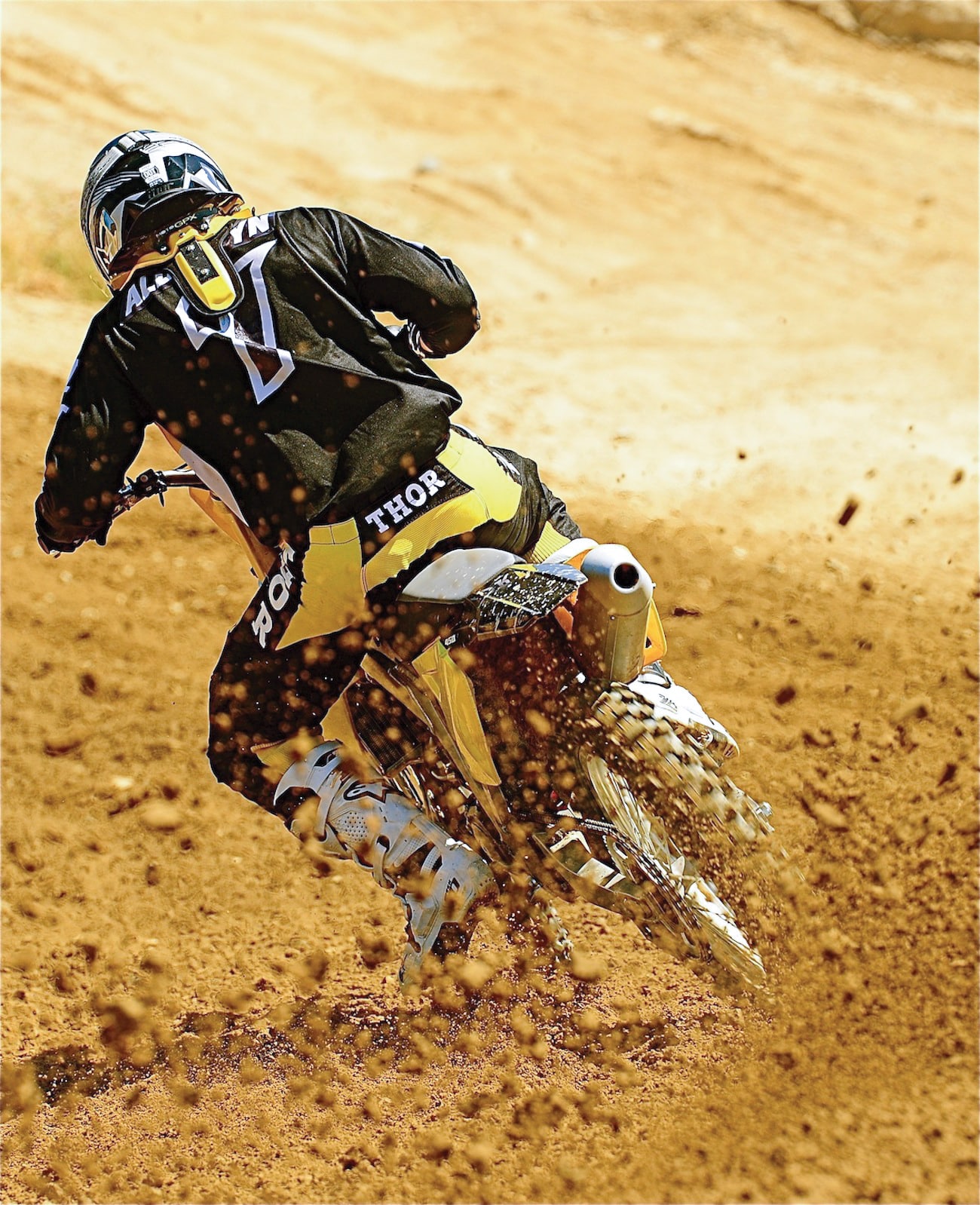
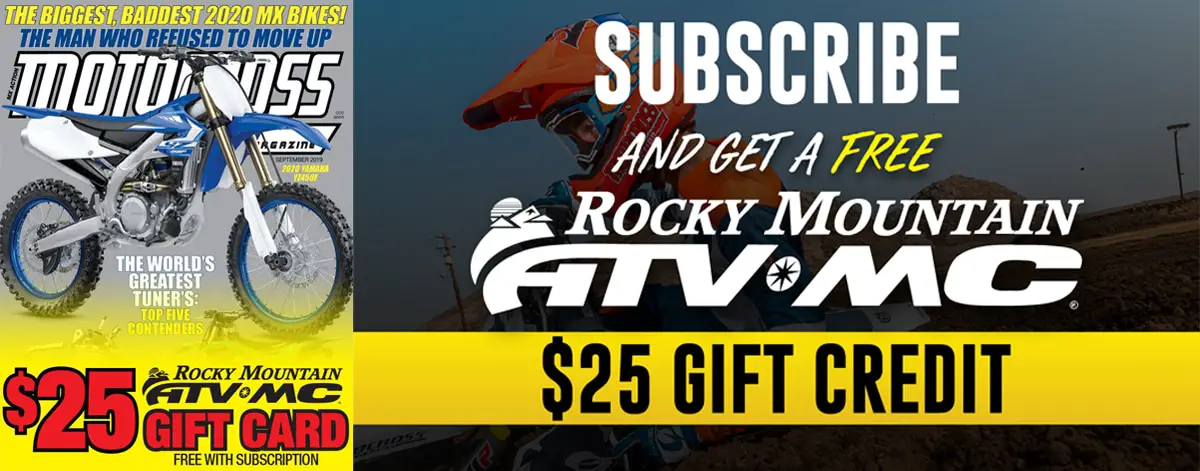
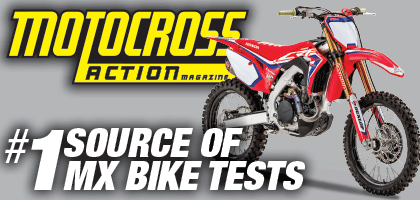


Comments are closed.